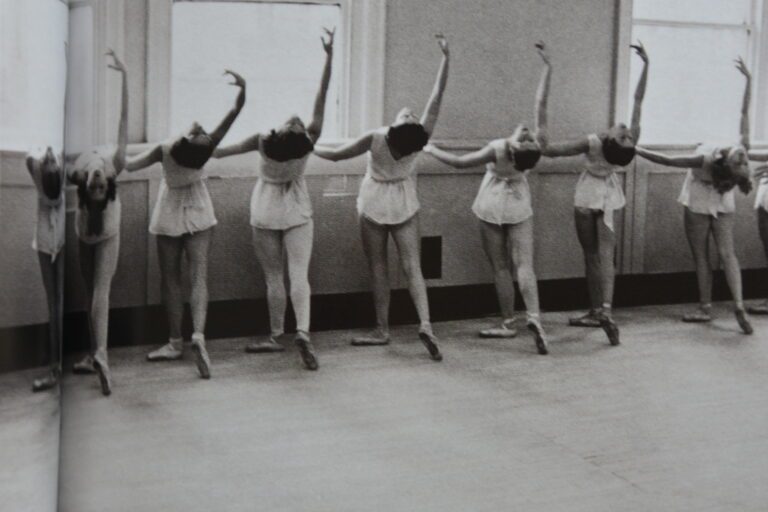
Last week one of my patients had returned from a particularly difficult amateur golf tournament, one where he didn’t do well, and he asked me: “Why is golf so important to me?”
The question of why elite amateur athletes put themselves through the torments of hell is a good question. Whether they play golf, tennis, run in marathons or Iron Man races, the question that sometimes emerges during therapy is why should they bother. Why spend so much time, energy, money and risk injury just to earn a trophy?
Surprisingly, I found an answer to his crucial question in Manhattan while watching the New York City Ballet perform the Jerome Robbins masterpiece “Glass Pieces” with music by Philip Glass.
I had seen this ballet once before in Paris and that performance marked the first time I was ever proud to be an American. I wished to see it again and so despite not getting a press passes to review it, I forked over my own hard-earned money to see it again. That ought to give you an idea of just how good this ballet is.
The first three ballets on the program included “Pieces at an Exhibition,” “Red Angels” and “Play Time,” all of which were more contemporary and not memorable with the exception of watching India Bradley perform in “Red Angels.” Bradley has somehow channeled the spirit of the Russian ballerina Natalia Makarova with identical hand, arm and body movement.
But now let us get to the meat of the matter, discuss the American masterpiece “Glass Pieces” and discover how Jerome Robbins answered the question of why anyone should sacrifice their life to a craft, whether the craft is dancing or golf.
“Glass Pieces” is divided into three sections, “Rubric,” “Facades” and “Akhnaten,” all set to the mesmerizing music of Philip Glass. The first piece has a background that looks like graph paper with 40 members of the corps walking quickly across the stage as pedestrians would walk on a Manhattan sidewalk. And interspersed among the casual walkers are three pair of dancers performing classical lyrical balletic pas de deuxs.
The contrast is jarring. Jerome Robbins has shown in a simple way the huge difference between regular people and those who have developed their craft in a transcendent way. The contrast between the theme of a pedestrian life vs. an artistic life is highlighted even more so in Scene Two called “Facades” where you see in the back the slow shuffling walk of ballerinas as they make their way from stage right to stage left. In the front of them are two principal dancers doing another classical pas de deux. The contrast between the many who walk and the few who dance is again in full view.
The final segment called “Akhnaten” is where Robbins’ humor and choreography take full flight with the corps of men entering on stage left, moving quickly to the Glass music with elbows leading the way. Then come the corps of ballerinas, who have their own cute, stylish and charming moves in unison.
The message delivered to the audience’s minds is clear. Here we see dancers, set in bold relief against regular humans. The dancers are attempting to express and display excellence, greatness, beauty and perfection. They are trying to demonstrate what it means to engage in the struggle to transcend human limitations.
This effort is reminiscent of the great debate and the bet made between Mephistopheles and God in the first act of “Faust” by Johann Wolfgang von Goethe. God believes in the best in man. Someone like Dr. Faust is always striving to obtain perfection and his quest is morally good.
Satan holds a more negative, cynical view of Dr. Faust, saying that he is like the bulk of humanity, weak, lazy, selfish and stupid and is little more than a cricket trying to jump into the air only to fall back into the mud.
And to return to the question my patient asked about why his golf game was so important to him. He has always been an elite golfer from the age of 12. He may not have realized it, but he had a calling. The calling comes from innate and special talent that may be God- given.
And every elite golfer, dancer, swimmer, runner, artist, and musician are all in the same boat. They showed talent and heard the call to greatness. When you have heard this call, you then must shoulder the burden that comes with it. Talent is like a Frankenstein monster that must be listened to, nourished and respected. If you ignore your talent, you will suffer with guilt.
But if you shoulder the burden of talent and submit to its demands, then you will have pride, the respect of others and at times even fame and applause.
And that is what I will tell that golfer. Teddy Roosevelt once said: “It is not the critic who counts. The credit goes to the man in the arena, whose face is marred in dust, sweat and blood and who continues to strive valiantly.”
The call to greatness is a worthy quest, no matter what field you are in.







